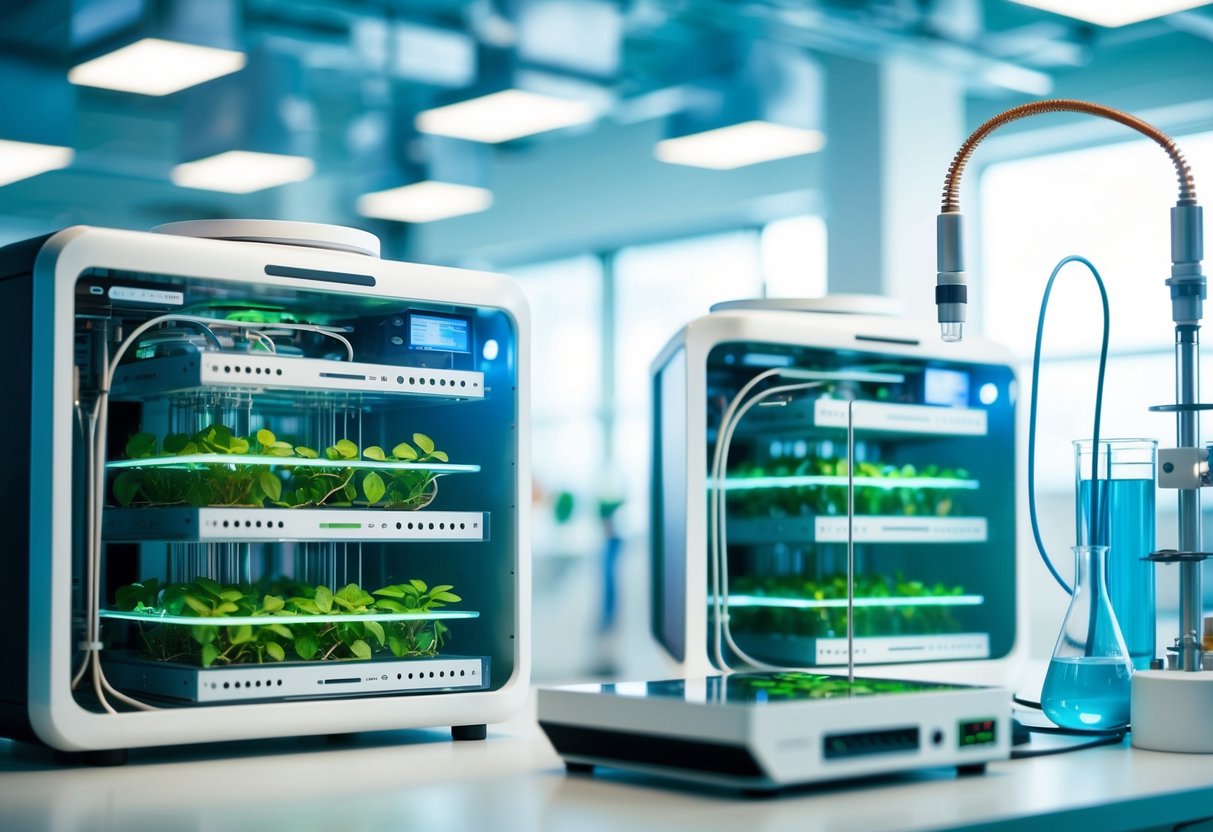
Comparative Analysis of Computational Power and Efficiency
Biocomputing presents a fascinating divergence from traditional computing paradigms, challenging established metrics of power and efficiency. Its potential to revolutionize processing through biological means holds promise and complexity.
Biocomputing vs. Modern Computing Systems
Biocomputing systems harness biological processes for computational tasks, diverging distinctly from silicon-based technologies. Traditional systems rely on binary calculations within integrated circuits, driving computational power principally through clock speeds and transistor densities.
Biocomputing, in contrast, utilizes biochemical reactions and cellular interactions for processing. This approach can potentially outperform conventional systems in efficiency, as biological entities operate with low energy consumption. The inherent parallelism of biocomputing processes suggests significant performance improvements, particularly in tasks related to complex molecular data analysis.
While supercomputers push boundaries with speed and accuracy, they consume vast amounts of energy and generate considerable heat. Biocomputing proposes a model where cellular mechanisms achieve computational objectives quietly and efficiently. This evolution suggests substantial transformations, although practical implementation remains in early stages compared to the well-established capabilities of current supercomputers.
The Quest for Cellular Supremacy
The pursuit of cellular supremacy in computing involves the creation of systems that mimic or surpass the functional capacities of biological entities. Biocomputing aims to leverage the natural proficiency of living cells in data processing and adaptability.
Cells demonstrate remarkable efficiency, performing complex biochemical computations swiftly and with minimal energy. By studying these processes, researchers seek to develop systems capable of handling massive datasets with similar resourcefulness.
Attaining cellular supremacy isn’t solely about constructing more powerful machines but also creating systems that can adapt, self-repair, and learn autonomously. The ultimate goal of biocomputing’s quest is to build computational frameworks that reflect the intricacies and efficiencies of natural biological systems while maintaining scalability and adaptability in various applications.
Potential for Cognitive Enhancement
Biocomputing holds significant promise for augmenting human memory and improving learning capabilities. It could also address certain cognition challenges related to developmental issues.
Exploring Memory and Learning Capacities
Biocomputers have the potential to revolutionize how humans store and recall information. Their architecture could mimic neuronal pathways, providing enhanced memory retention and retrieval capabilities akin to human brain processes. This capacity may lead to the development of systems that improve upon traditional computing by supporting more natural, efficient learning methods.
Such systems may aid individuals with memory impairments or those who struggle with learning difficulties. By integrating with existing neural structures, biocomputers could offer personalized strategies to strengthen memory retention. For instance, individuals with autism may benefit from tailored synergies between biocomputational processes and brain functions to better manage and learn from their experiences.
Biocomputers and Cognition Issues
Aside from enhancing learning, biocomputers could also address cognition-related challenges. By interfacing directly with the brain, these devices might help diagnose and treat disorders that affect cognitive functions. This includes targeted therapies for developmental conditions like autism, where traditional methods may fall short.
Biocomputers might allow for real-time analysis and intervention in cognitive processes. This ability could transform personalized medicine by offering dynamic solutions to cognition issues. Such technologies could contribute to significant advancements in mental health care by providing more adaptive and precise treatment protocols.
In exploring biocomputing’s potential, it is crucial to address ethical considerations. Ensuring privacy and effective regulation will be key to the responsible development of biocomputational technologies. Public and scientific discourse will play integral roles in shaping pathways for integrating these advances into everyday life.